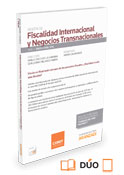Where would say goodbye to life on earth? Now, the when is difficult to assert but the where is in your hands, sometimes.

With globalization and digitization, the digital nomad lifestyle is attractive and frequent. How many times have you been approached by someone telling you that he works everywhere and doesn't have any ties anywhere and does not want to pay taxes? On social media, this trend is becoming a daily mantra. At least once a week, someone calls me or emails me claiming to have no ties anywhere and "belong to world/universe". I gasp.
Recently, a Canadian citizen living in southern Spain with his Brazilian wife approached me for a consultation with that respect. He asked me if there were any possibility to be non-resident in Canada but also non-resident anywhere else in the world, having no residential ties anywhere. My very quick answer was that it was not possible. He answered very theoretically "I have adopted a nomad lifestyle. I belong to everywhere and nowhere; I am a son of humanity!" I couldn't hold the laughter coming out of my mouth with my "Ok, I understand". I tried to make him realize that it is impossible not to have a domicile, a residence, a sense of belonging. And, if you were Canadian, it is much more difficult given the intricacies of our laws.
I understand that he doesn't want to have ties anywhere so he would not be subject to pay income taxes anywhere! Mr. Humanity represents the Generation Y, focused on success, rapidity and results. So, this generation wants faster and more concrete results from governments, which are not efficient or just in their way of spending and social contributions. Ok, fine with me, I buy it…
This chat with Mr. Humanity left me with a bitter sensation. How inaccomodating our global tax system is. Mr. Humanity, with his Canadian passport, accompanied by his Brazilian spouse, parking his boat in Marbella, travelling business with the Emirates, wearing his Italian suit and driving his German BMW, enjoying Russian Caviar and French champagne, establishing his manufacturing plants in Malaysia and his business in the Isle of Jersey… only himself is benefitting from the systems of many states, yet not wanting to paying a dime in taxes to any of them! Without any doubt, as a tax expert I can understand that he wants to run his business with the less taxes to be paid possible. But, the justice woman in me is outraged… What this man represents, for me, is exploitation and greed. Mr. Humanity wants to benefit from everything that all those states have to offer and not contribute to any of them, to any of the employees who work hard, so people like him could enjoy the luxury and the extravagancy of such lifestyle. I wanted to respond to him "Mr. Humanity, how about you return to Humanity what belongs to Humanity? i.e. respect of the hard workers, obedience of rules of law, belonging to society and the appropriate share of financial contributions to this world!"
Out of curiosity, I started doing a research over what is being said about the nomad lifestyle. I found many sites and blogs where digital nomads share their experiences on how they avoid paying taxes living such a lifestyle. These sites are not made by tax practitioners. They are created by individuals with very limited tax know-how. For example, a Spanish young man shared in his blog that he had established an Estonian company for online and software services, while he moved to Latvia. So, our Mr. Humanity was very right in his quest of the tax ideal "Eldorado".
Without any surprises, I couldn't find any tax authority mentioning anything about the digital nomad tax or lifestyle. What we mostly face in tax legislations of most OECD member states are: the residence rule of 183 days, interpretation of the main base or centre of their activities or economic activities, tie-breaker rules with the country, etc. I searched various countries' case-law, and can you believe that I found nothing over this question? Most court cases would discuss the concepts of resident, deemed resident, non-resident, free circulation, exit tax, departure tax. Does this mean that tax authorities are not following the pace of the new social model?
Technically, applying the number days, if someone resides more than 183 days in a country (Spain, France, Canada, Australia, etc.) would be come subject to the income tax in said country. However, we all know that analysis must be done on a case-by-case basis. If we look at article 4 o the OECD Model Tax convention on Income and Capital (2019) ("OECD MTC"), we find the resident test process that finally leads us to either:
"(c) if he has an habitual abode in both States or in neither of them, he shall be deemed to be a resident only of the of which he is national;
(d) if he is a national of both States or of neither of them, the competent authorities of the Contracting States shall settle the question by mutual agreement."
We all know that the usefulness of this article is to avoid double taxation, to clarify the scope of residence and source or situs and to avoid that the same person would be taxed under two domestic laws of both contracting states claiming that said person is resident in both territories. But as much as I would like to spend time analysing this article and the notion of residence, it does not directly give me an answer for our Canadian Mr. Humanity and does not convince him that he still needs to pay taxes somewhere, somehow. I mean, no matter how nomad one can be, he still has ties somewhere: banking accounts, driving licences, health and/or life insurance. When kids are born: what passport would they hold, where would they be registered, where would they attend to school? In a boat on international waters? And, when he dies, does he want to be thrown in the sea or buried/cremated on land? If the sea is attractive, which one of them and why?
In the view of tax authorities, it is impossible to belong to "nowhere". In Canada, back in 1946, the question was already raised to the Supreme Court of Canada in the case Thomson v. Minister of National Revenue[1]. This case is the main historical case in interpreting the residence notion in the Canadian tax system. Canadian Revenue Agency's ("CRA") position is clear: who ceases to be resident here, but does not take up residence in another country, remains a Canadian resident for tax purposes and therefore continues to be subject to tax on world-wide income. In Australia, in November 2018, the Australian government wanted to revamp the tax laws and address the "nowhere residence" issue declaring Australians residents for tax purposes, until they prove residency elsewhere. This concept exists already in section 6(1) of the 1936 Australian Assessment Act. On May 17, 2019, the Handsley case of the Administrative Appeals Tribunal of Australia ("AATA")[2] shows the difficulty of breaking the Australian tax residency, unless a new place of permanent abode elsewhere is taken.
From saving on double taxation to eliminating taxation at all; from tax planning to tax elimination. Something does not feel right.
Many blogs claim to be easy to take domicile in a country where there are no taxes or considered tax havens. Wrong! Some states have adopted the position that nationals would still be deemed resident in their country if their fiscal domicile is in a tax haven. This is the case of Spain. It is clearly stated in article 8.2 of the Individual Income Tax Act ("IITA") that individuals of Spanish nationality who accredit their new fiscal residence in a country or territory considered as a tax haven will not lose their status as taxpayers for Individual Income Tax. This rule is of application during the tax period in which the change of residence occurs and for the next four tax periods. Not to mention that daily, I read on the expatriates' pages that many Canadians and Australians currently are being asked by the Spanish tax authorities' certificate of residency in their home country, otherwise the AEAT assesses them under the IITA.
So, let's say Mr. Humanity stays in total 160 days in Spain throughout a year, 90 days between Monaco and France, 90 days in the Caribbean, and the remaining days between United-States and Canada during Christmas. Where does he pay his taxes? For me to analyse his situation, I had to ask him about his life's details, because it became very clear to me that just relying on the principles of the article 4 of the OECD MTC and the Canada-Spain tax treaty, would not be easy. So, I found out that for his mailing he uses his parents' address in Canada. He possesses shares in Canadian and Spanish corporations. He still holds his Canadian driving licence. He also has some investments in Canada, Spain and Thailand. He still has a Registered Retirement Savings Plan account in Canada, Tax-Free Savings Account in Canada and banking accounts in Canada. His main source of income consists of his business established in Isle of Jersey and the plant in Malaysia where he also carries banking accounts, a domicile address, a visa card and a working permit.
For this taxpayer, the cost in time and money to contest the assessment of any tax authority would be considerable. He can't say he has ties "nowhere". Facts are showing that he has ties in many places. Furthermore, if he wanted to claim himself as non-resident in Canada, he would still be subject, at least, to the withholding tax on payment of dividend from his Canadian shares, same would apply to Spain. In such situation, I recommended him to prepare and document a good planning, ensure to create ties somewhere, because the CRA will never accept the "nowhere residence" which might haunt him back, even maybe after 20 years with interests and penalties.
At the end of my consultation with Mr. Humanity, despite all the details he gave me, he still insisted he had no ties anywhere and did not want to pay any taxes in Canada. I asked him where he would want to retire, and he said he was already retired. So, my final question to him was "where would you want to be buried on your passing?" Of course, it made him perplexed and with no answer… I don't know if it made him think of a place of residence. I can assure you that I kindly told him it would be very difficult for me to help him. Mr. Humanity, being human is being a social being. Being social requires belonging to a society. For that society to function, it requires funds. Those funds come from our taxes. Cheers.
[1] Thomson v. Minister of National Revenue [1946] (SCC)
[2] Handsley and Commissioner of Taxation (Taxation) [2019] AATA 917 (17 May 2019)




